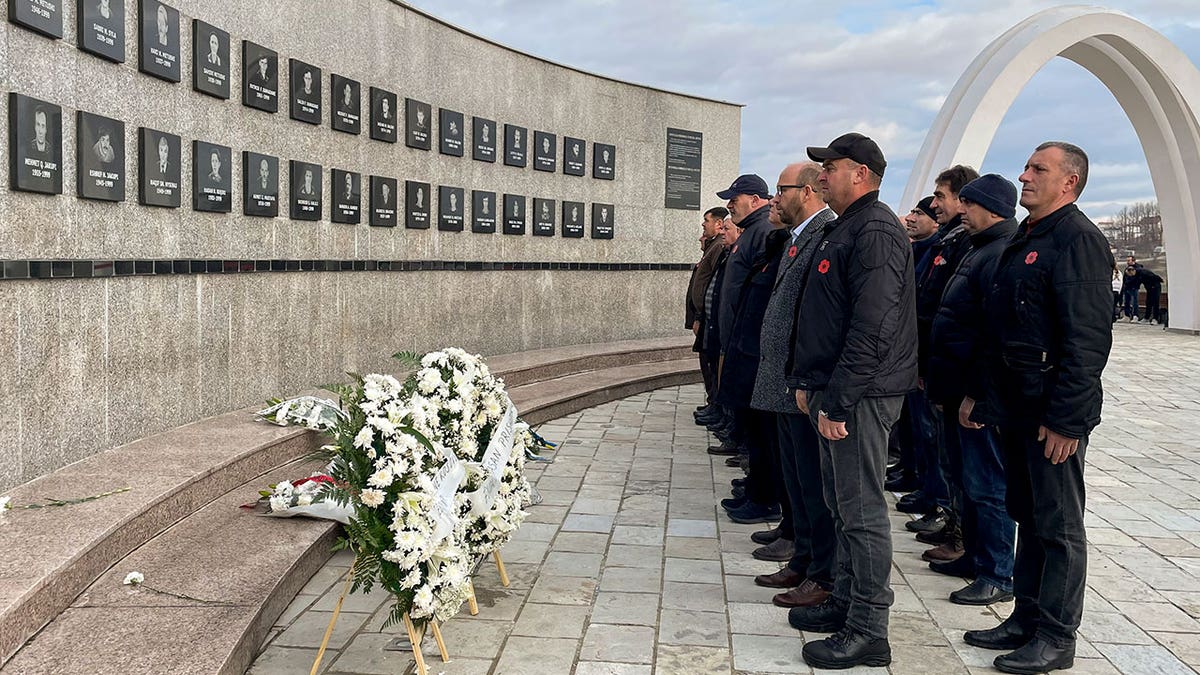Fox News Flash top headlines for January 15
Fox News Flash top headlines are here. Check out what's clicking on Foxnews.com.
- Hundreds of Kosovars gathered in a southern village to commemorate the 25th anniversary of a mass killing of 45 ethnic Albanians by Serb forces.
- The event in Recak, which took place during the 1998-99 war in Kosovo, sparked international intervention.
- Relations between Kosovo and Serbia remain tense with a recent gun battle in September that left an officer and three gunmen dead.
Hundreds of Kosovars gathered in a southern village Monday to commemorate the 25th anniversary of a mass killing of 45 ethnic Albanians by Serb forces, an event that helped spark international intervention to end a 1998-99 war in Kosovo.
Kosovo President Vjosa Osmani, Prime Minister Albin Kurti and Parliament Speaker Glauk Konjufca joined citizens at a cemetery in Recak, 20 miles south of the capital, Pristina, for the commemoration ceremony.
Former U.S. diplomat William Walker, 88, who led an Organization for Security and Cooperation in Europe mission tasked with overseeing a cease-fire agreement, also was present. Walker's use of the term "massacre" to describe the killings in Recak paved the way for a 78-day NATO bombing campaign of Serb forces that ultimately ended the war. He is revered as a hero in Kosovo.
US WARNS BOSNIA AGAINST CELEBRATION OF CONTROVERSIAL SELF-PROCLAIMED HOLIDAY
The government of Serbia’s then-president, Slobodan Milosevic, claimed that the dead were members of the rebel Kosovo Liberation Army who were killed in combat with state security forces.

People observe a moment of silence in front of a memorial for Kosovars killed in 1999 by Serb forces in Recak, Kosovo, on Jan. 15, 2024. Hundreds of people have gathered in a village in southern Kosovo to commemorate the 25th anniversary of a mass killing of 45 ethnic Albanians by Serb forces. (AP Photo/Zenel Zhinipotoku)
"This was one of the most horrendous massacres committed by the Milosevic regime at that time, showcasing once again that their intention was to commit crimes against humanity and genocide against the people of Kosovo," Osmani said.
At the time of the war, Kosovo was a province of Serbia. A Serb government crackdown on Kosovo’s separatist ethnic Albanians killed some 13,000 people, most of them ethnic Albanians. The United Nations governed the province until 2008, when Kosovo declared independence, an act that the government in Belgrade still hasn’t recognized.
KOSOVO ACCUSES SERBIA OF PLOTTING RECENT TERROR ATTACK, STOKING FEARS OF NEW BALKAN CONFLICT
Kurti denounced Serbian President Aleksandar Vucic for not recognizing and apologizing for the Recak massacre, either as Milosevic’s minister of information or Serbia's current leader.
The mass killings in Recak were the first confirmed through evidence collected by international monitors and made known to the world through international news coverage, Kurti said.
"The Recak massacre has been proved as a crime against humanity in front of the world and of history," the prime minister said.
Relations between the two neighboring countries remain tense and flare from time to time. In September, a gun battle between about 30 Serb gunmen and police in northern Kosovo left an officer and three gunmen dead.
